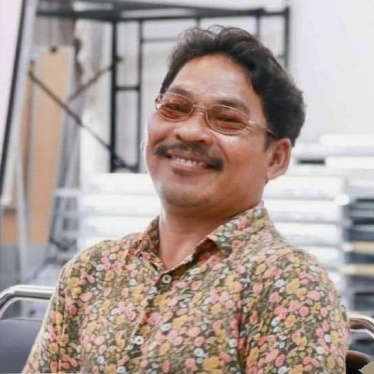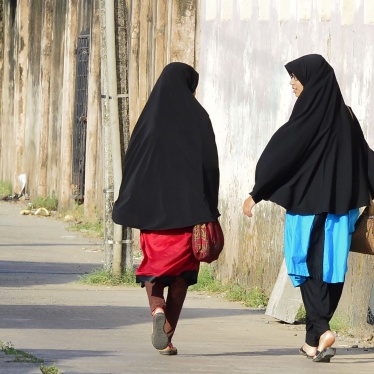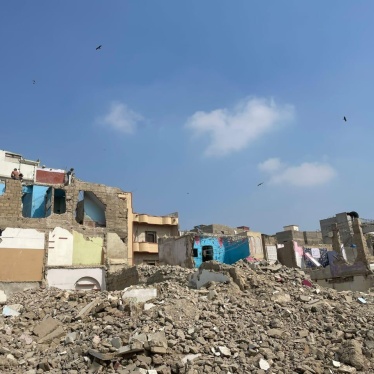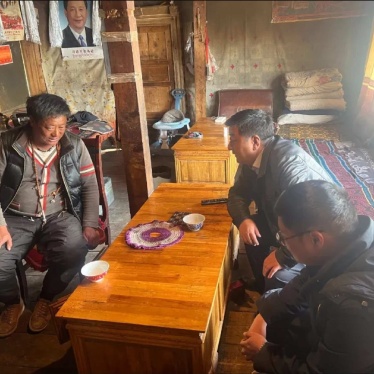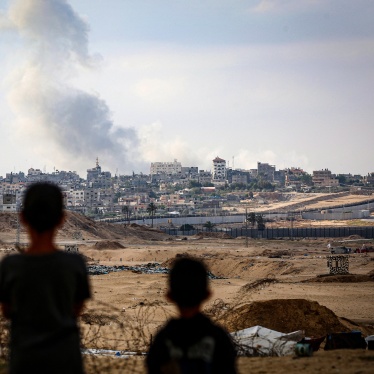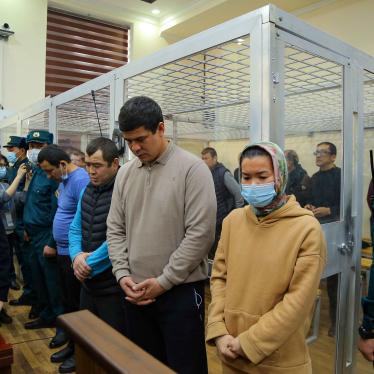Unrest has rocked Vietnam's Central Highlands since February 2001, when thousands of indigenous Montagnards took to the streets to protest widespread confiscation of their ancestral lands and religious repression.
The latest wave of Montagnards fled their villages after a bloody government crackdown a year ago during Easter weekend protests. Vietnamese security forces blocked key bridges and intersections. When the demonstrators refused to turn back, police fired tear gas, beating people when they fell down. Suspected organizers of the protests were dragged away and arrested. Afterwards, the police entered the villages, ransacking houses and beating villagers as they searched for activists. By Easter evening, the provincial hospitals were full of wounded Montagnards, bloody from cracked skulls and broken arms and legs. At least ten Montagnards were confirmed to have been killed.
The government's repression of activists, church leaders, and families of people who fled continues, generating a small but steady flow of refugees into neighboring Cambodia.
Many refugees whose protection is precarious in countries of first asylum around the world hope for resettlement to other countries where asylum is more secure. But in an unusual development, more than 250 Montagnards in Cambodia -- including many U.N.-recognized refugees -- have refused resettlement to a third country outside the region. Some are fearful that they may never see their spouses and children again. Others say they want to wait in Cambodia until the problems in the Central Highlands are resolved, so they can then safely return home. Many remain afraid of what awaits them if they return home now.
Fears among Montagnards in Cambodia are high after a January 25 agreement between the United Nations High Commissioner for Refugees (UNHCR) and the governments of Cambodia and Vietnam stating that Montagnards who do not agree to return to Vietnam or resettle abroad are to be forcibly returned to Vietnam. Montagnards under U.N. protection in Phnom Penh at the time the agreement was signed had to make their decision by last week whether to resettle or return to Vietnam.
Many are afraid because Vietnam does not allow UNHCR or other independent monitors into the Central Highlands to ensure their safe return. The January agreement states that the Vietnamese Government and UNHCR will "consult and cooperate" on visits to the returnees "at an appropriate time," but Vietnam has made no commitment to turn these vague words into access.
Though the Vietnamese government has promised not to punish those who fled for the fact that they did so, it has made no commitment to refrain from punishing and prosecuting returnees for practicing their religion or expressing their political opinions. Indeed, approximately 180 Montagnards have been sentenced to prison terms in Vietnam of up to thirteen years since 2001 for their political and religious activities, or for attempting to flee to Cambodia. The most recent trial, of three Montagnard men, was conducted the same day the January 25 agreement was being negotiated.
Human Rights Watch has documented recent cases of beatings, arbitrary arrests, and harassment against returnees from Cambodia (see Vietnam: New Evidence of Torture, Mass Arrests of Montagnards). We continue to receive reports of a stepped-up military and police presence and ongoing arrests and torture of suspected activists. Local authorities are convening meetings where they pressure villagers to renounce Christianity and harangue them not to count on help from the international community.
From time to time, Cambodia has succumbed to pressure from Hanoi to forcibly return Montagnards. In one notorious case, in early January, Cambodian police removed a family of Montagnards who were inside a UNHCR compound in Phnom Penh and sent them back to Vietnam.
Cambodia is a state party to the 1951 UN Refugee Convention. This means it must provide protection to refugees and ensure that no one is forcibly returned to a place where he or she might face persecution. Cambodia is also bound, by human rights treaties, not to forcibly return people to a place where they will suffer torture or other inhuman or degrading treatment or punishment. With the support of UNHCR and interested governments, such as Canada, the United States and European governments, Cambodia must resist the pressure to forcibly return any refugees or asylum-seekers.
By signing the January 25 agreement, UNHCR has implicitly agreed to the return of recognized refugees to a country that is actively persecuting such people and with no meaningful guarantees of their protection. UNHCR hopes that the agreement at least allows those who manage to reach UNHCR to remain very temporarily in Cambodia until they decide either to resettle or return. But UNHCR should also be making it clear to both Vietnam and Cambodia that it will not tolerate forced return of Montagnard refugees from Cambodia, even if those concerned do not agree to resettle.
While refugees all over the world are forced to make difficult choices, it is important to remember that these are difficult and personal decisions and that there is no immediate or objective reason for the option of asylum in Cambodia to be ruled out. Refugees should not be stripped of their right to be protected from forced return to persecution simply because they are reluctant to resettle on another continent.
It is commendable that, since February 2001, Cambodia has offered temporary shelter to several thousand Montagnard refugees, despite intense pressure from Vietnam to send them all back. Allowing such a small number of asylum seekers to remain creates little true burden on Cambodia. The U.N. and private agencies pay for their welfare. The problem is therefore one of political pressure from Vietnam, which Cambodia succumbs to from time to time, at great human cost to individuals who need protection the most.
Of course, the source of the problem is in Hanoi. It is the Vietnamese government's policies that lead to unrest in the Central Highlands and cause continued flows of asylum seekers.
International pressure was key in persuading Vietnam to provide guarantees and access that made repatriation of large numbers of "boat people" a viable option during the 1990s. The international community should once again step in and insist that Vietnam grant full access to UNHCR monitors. No one should be returned to Vietnam unless there are firm guarantees that any such returns are genuinely voluntary and sufficient safeguards are in place to protect returnees and their families.
This is not some abstract policy issue. It's about real people, most of them poor, who have few choices in life. As one Montagnard, who fled to Cambodia after being beaten with an electric baton by police for demonstrating, explained: "I abandoned my wife, my house, my children. … I want the international community to understand clearly that I didn't come here to get rich or to resettle abroad. We just want our land. When we have our land, we can support our families and live freely."
